Children Dealing with Violent Rage
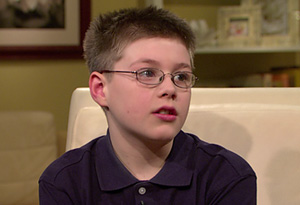
When Zach was 18 months old, his parents, Joe and Laurie, began thinking his behavior wasn't normal. When Zach was happy, Laurie says he was as happy as any child. "When he was angry, it was over the top. It wasn't like a normal tantrum." she says. "His rages would be over absolutely nothing. He would completely destroy his room at 18 months. His strength was 10 times that of a normal child. ... We kept thinking, 'Well, maybe this is something that Zach will grow out of and maybe he's just a really, really active, passionate little boy.'"
Instead, Zach's rages grew more intense and more frequent. At home, Zach would scream, throw toys and punch holes in the wall. He was particularly violent when playing with his sister, Julia, who is two years younger than he is. In kindergarten, Zach tried to stab a classmate with a pair of scissors.
Much of Zach's rage was directed at Laurie. "I started to be afraid of Zachary," Laurie says. "He would actually say to me, 'Mommy, I love you. I don't want to kill you, but I do.'"
Laurie says she once turned around in the kitchen to find Zach standing before her with a kitchen knife in his hand. "He had his arm poised back and he had a crazy look in his eyes as though he was going to stab me—for no reason, nothing," she says. "I just grabbed the knife out of his hand."
Joe and Laurie were so scared of what their son might do, they started sleeping with their bedroom door locked. "What if I wake up at night and Zach's standing on the edge of my bed with a club?" Joe says. "I mean, you just didn't know."
Instead, Zach's rages grew more intense and more frequent. At home, Zach would scream, throw toys and punch holes in the wall. He was particularly violent when playing with his sister, Julia, who is two years younger than he is. In kindergarten, Zach tried to stab a classmate with a pair of scissors.
Much of Zach's rage was directed at Laurie. "I started to be afraid of Zachary," Laurie says. "He would actually say to me, 'Mommy, I love you. I don't want to kill you, but I do.'"
Laurie says she once turned around in the kitchen to find Zach standing before her with a kitchen knife in his hand. "He had his arm poised back and he had a crazy look in his eyes as though he was going to stab me—for no reason, nothing," she says. "I just grabbed the knife out of his hand."
Joe and Laurie were so scared of what their son might do, they started sleeping with their bedroom door locked. "What if I wake up at night and Zach's standing on the edge of my bed with a club?" Joe says. "I mean, you just didn't know."

Because anything—even something as minor as his losing at a board game—could launch Zach into a violent rage that would last for hours, Laurie says normal discipline and parenting was impossible. "We had to put everything away that you could imagine: knives, things that normally you could keep in your house," she says. "I would actually clear the table on occasion if there were vases and he was starting to get into one of those spaces. Because I had no idea what he would do."
Joe and Laurie realized how dangerous Zach's rage had become when they left their kids with Amanda, a relative who lived close by and knew about Zach's mood swings. When Amanda told Zach it was time to get ready for bed, he started spitting and screaming. "It was not the little boy that I know," she says. "It was like straight out of a horror movie."
Scared of what Zach might do, Amanda grabbed Julia, ran into a bedroom, locked the door and called Joe and Laurie.
When Joe and Laurie arrived, their house was ransacked. Zach had broken glass and furniture, and smeared feces on the walls. Joe found Amanda and Julia hiding in the bedroom. "It was unbelievable and I didn't know what we were going to do," Joe says. "To be scared of your own kid or what he might do—it's indescribable."
Joe and Laurie realized how dangerous Zach's rage had become when they left their kids with Amanda, a relative who lived close by and knew about Zach's mood swings. When Amanda told Zach it was time to get ready for bed, he started spitting and screaming. "It was not the little boy that I know," she says. "It was like straight out of a horror movie."
Scared of what Zach might do, Amanda grabbed Julia, ran into a bedroom, locked the door and called Joe and Laurie.
When Joe and Laurie arrived, their house was ransacked. Zach had broken glass and furniture, and smeared feces on the walls. Joe found Amanda and Julia hiding in the bedroom. "It was unbelievable and I didn't know what we were going to do," Joe says. "To be scared of your own kid or what he might do—it's indescribable."
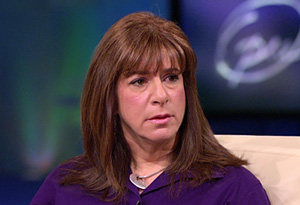
When Zach would be in a rage, everyone else in the family suffered too, Laurie says. She says almost all of her conflicts with Joe were about Zach. Though she considers herself to be an energetic and positive person, a day spent with Zach would leave her feeling completely wiped out. "At the end of the day, there were times when I would just say, 'I can't do it another minute. You need to take over. I need a break,'" she says. "It was very, very taxing."
And because raising Zach required so much energy and focus, Laurie says there was rarely ever anything left for Julia. "After the incident with the babysitter, we were sitting at the table with Julia. She looked at me and she burst into tears and she said, 'Mama, it's just always all about Zach,'" Laurie says. "And she went running upstairs crying. In that moment Joe and I realized that we have to do something. We're losing everyone."
And because raising Zach required so much energy and focus, Laurie says there was rarely ever anything left for Julia. "After the incident with the babysitter, we were sitting at the table with Julia. She looked at me and she burst into tears and she said, 'Mama, it's just always all about Zach,'" Laurie says. "And she went running upstairs crying. In that moment Joe and I realized that we have to do something. We're losing everyone."
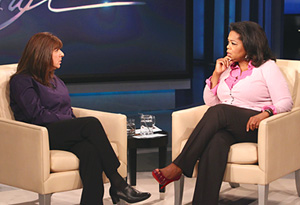
After the incident in kindergarten when he tried to attack a classmate with scissors, Joe and Laurie decided to seek help from psychiatrists. Zach was diagnosed with severe attention deficit hyperactivity disorder, unspecificed mood disorder and Tourette syndrome. In addition, Zach was diagnosed with sensory integration disorder, a non-mental illness condition which alters the way one processes stimuli—sound, touch, smell—from the world.
Laurie says Zach has a combination of hypersensitivity and hyposensitivity. "He would do things like throw himself on the ground and thrash his body. Where in a normal kid it would hurt, [Zach] would get pleasure, he would laugh," Laurie says. "Sound bothered him. Light, clothing, that sort of thing. Everything was accentuated 10 or 15 times of what a normal person would experience."
* While numerous diagnoses were given to Zach, including those mentioned above, it is not the intention of The Oprah Winfrey Show to attribute any one of these disorders as the reason behind Zach's violence and negative thoughts.
Laurie says Zach has a combination of hypersensitivity and hyposensitivity. "He would do things like throw himself on the ground and thrash his body. Where in a normal kid it would hurt, [Zach] would get pleasure, he would laugh," Laurie says. "Sound bothered him. Light, clothing, that sort of thing. Everything was accentuated 10 or 15 times of what a normal person would experience."
* While numerous diagnoses were given to Zach, including those mentioned above, it is not the intention of The Oprah Winfrey Show to attribute any one of these disorders as the reason behind Zach's violence and negative thoughts.
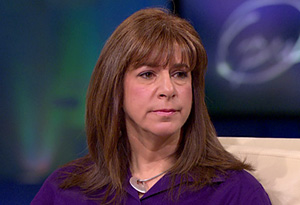
After Zach's diagnosis, he was prescribed what Laurie calls "some very heavy psychotropic drugs." "We worked with a wonderful psychiatrist," she says. "But ultimately the medical community, what they had to offer was drugs."
Laurie says these powerful drugs promised to calm Zach's rage, but brought with them a new set of issues. Laurie says her son sometimes has trouble remembering and learning. "And I'm not convinced [the medications] brought calmness at all," she says.
Raising Zach has been a constant emotional struggle, Laurie says. "You feel like a horrible parent. You don't understand why this is happening in your home. I know in my heart of hearts that we were good parents and loving. And this came from outside us," she says. "But you don't want the world to know. You can't participate in everyday life. You can't go to a baseball game without wondering how he's going to be. Nothing's normal."
Laurie says these powerful drugs promised to calm Zach's rage, but brought with them a new set of issues. Laurie says her son sometimes has trouble remembering and learning. "And I'm not convinced [the medications] brought calmness at all," she says.
Raising Zach has been a constant emotional struggle, Laurie says. "You feel like a horrible parent. You don't understand why this is happening in your home. I know in my heart of hearts that we were good parents and loving. And this came from outside us," she says. "But you don't want the world to know. You can't participate in everyday life. You can't go to a baseball game without wondering how he's going to be. Nothing's normal."

Today Zach is at a residential school for children with mental illnesses. Laurie says she and Joe decided to enroll Zach in this school after he had been hospitalized for three months. "There was absolutely no way that he could come home," she says.
At his school, Zach has learned a technique called "White Light" for dealing with his emotions. Instead of focusing on negative energy around him, "White Light" helps Zach focus on positive things and avoid the onset of his out-of-control anger.
Watch Zach explain to Oprah how "White Light" works.
Laurie says "White Light" has helped her cope too. "I used to worry a lot and have a lot of conflicted emotions: fear, worry and anger that this is happening to me," she says. "One of the biggest things that helped me was also learning about my own energies and thoughts and learning not to worry, which is huge as a mom because you're taught to worry. It made an enormous difference because every time I worried about Zach, I was actually sending him negative energy. He could feel it when I would get angry at our situation. And I learned not to be afraid of his rages in the end, which was quite a departure."
At his school, Zach has learned a technique called "White Light" for dealing with his emotions. Instead of focusing on negative energy around him, "White Light" helps Zach focus on positive things and avoid the onset of his out-of-control anger.
Watch Zach explain to Oprah how "White Light" works.
Laurie says "White Light" has helped her cope too. "I used to worry a lot and have a lot of conflicted emotions: fear, worry and anger that this is happening to me," she says. "One of the biggest things that helped me was also learning about my own energies and thoughts and learning not to worry, which is huge as a mom because you're taught to worry. It made an enormous difference because every time I worried about Zach, I was actually sending him negative energy. He could feel it when I would get angry at our situation. And I learned not to be afraid of his rages in the end, which was quite a departure."
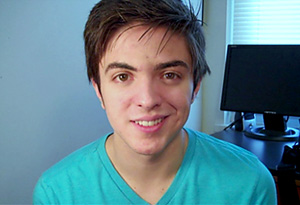
Laurie says the reason she and Zach wanted to talk about their family struggles on The Oprah Show is to help the millions of other families dealing with the hidden stigma of mental illness. "When you're living with kids like this, you get so used to the chaos and the dysfunction that you actually don't even realize what a normal family is," she says.
In 2000, Oprah Show viewers met a little boy named Brit. Like Zach, Brit was full of rage. At just 4 years old, he could rant for hours over his mother telling him to clean his room.
After that appearance, Brit was eventually diagnosed with bipolar disorder and got the right medication. He graduated from high school as a member of the National Honor Society and is on a full scholarship to Baylor University.
Watch Brit's message of hope to Zach and Laurie.
Should you be worried about your child? Learn the warning signs of explosive rage.
In 2000, Oprah Show viewers met a little boy named Brit. Like Zach, Brit was full of rage. At just 4 years old, he could rant for hours over his mother telling him to clean his room.
After that appearance, Brit was eventually diagnosed with bipolar disorder and got the right medication. He graduated from high school as a member of the National Honor Society and is on a full scholarship to Baylor University.
Watch Brit's message of hope to Zach and Laurie.
Should you be worried about your child? Learn the warning signs of explosive rage.



